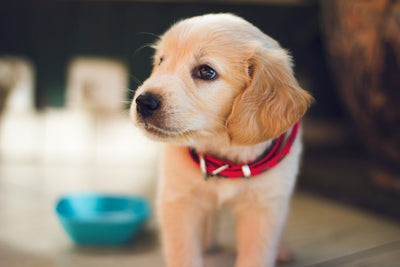Pet obesity is a growing concern among pet owners today. According to the Association for Pet Obesity Prevention, over 50% of pets in the United States are overweight or obese. This issue not only affects your pet's quality of life but can also lead to serious health problems such as diabetes, arthritis, and heart disease. This article will discuss the crucial role diet plays in pet obesity and provide practical tips to help your furry friend maintain a healthy weight.

Understanding Pet Obesity
Obesity in pets, particularly in dogs, is typically due to excessive calorie intake and lack of physical activity. Overfeeding your pet or giving them high-calorie treats can significantly contribute to weight gain. It's essential to understand that while treats might make your pet happy, they should only make up 10% of their daily calorie intake. The remaining 90% should come from a balanced and nutritious diet.
Why Should I Be Concerned About My Pet’s Weight?

Excess weight can put your pet at risk for various health problems. Obese pets have a shorter lifespan and are more likely to suffer from diseases such as diabetes, arthritis, heart disease, and even certain types of cancers. In addition, overweight pets may experience decreased stamina, heat intolerance, and difficulty with physical activities like walking or climbing stairs.
Is My Pet Overweight?

Determining whether your pet is overweight involves more than just a simple scale reading. Rather, it's about body condition scoring (BCS). A pet with a BCS of 1 is too thin, while a pet with a score of 5 is obese. Your veterinarian can assess your pet's BCS during regular check-ups.
How Can I Help My Pet Lose Weight?

The first step towards helping your pet lose weight is committing to a healthier diet and lifestyle. Here are a few tips:
Balanced Diet: Ensure your pet is on a balanced diet that includes high-quality protein, fiber, and essential vitamins and minerals. Consult with your vet or a pet nutrition expert to determine the best diet plan for your pet.
Portion Control: Be mindful of your pet's portion sizes. Overfeeding is a common cause of weight gain in pets.
Regular Exercise: Regular physical activity is crucial in maintaining a healthy weight. This can include walks, playtime, or even structured exercises for pets.
Limit Treats: While treats are a great way to reward your pet, they should be given in moderation. Choose low-calorie, healthy treats and avoid those high in fat and sugar.
Preventing Obesity in Pets

Preventing pet obesity is much easier than treating it. Making sure your pet gets regular exercise, feeding them a balanced diet, and monitoring their weight can help keep them in top shape. Remember, your pet's health is a reflection of the care they receive.

The role of diet in pet obesity cannot be overstated. As a pet parent, it's your responsibility to ensure that your pet maintains a healthy weight. This involves providing a balanced diet, regular exercise, and regular vet check-ups. By taking these steps, you can help your pet live a longer, healthier, and happier life.






